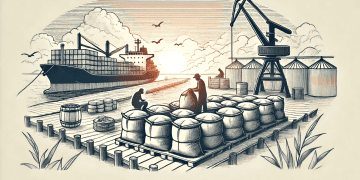In a recent policy update, the Philippines has announced a significant reduction in tariffs imposed on imported rice, marking a notable shift in its agricultural trade strategy. Effective immediately, the tariff rates on rice imports will be slashed by 20%, signaling the government’s intent to stabilize domestic rice prices amidst fluctuating global market conditions.
This decision comes as part of the Philippines’ ongoing efforts to enhance its food security measures and ensure a steady supply of affordable rice for its citizens. By lowering tariffs, the government aims to alleviate the financial burden on consumers and create a more competitive market environment that benefits both farmers and consumers alike.
According to SupplyChainReport, this move is expected to impact the local agricultural sector, potentially leading to increased competition for Filipino rice producers. However, it is anticipated to bolster the overall efficiency and resilience of the country’s rice supply chain by promoting greater market dynamics and encouraging import-dependent industries.
Moreover, analysts suggest that the tariff reduction could stimulate economic growth by curbing inflationary pressures associated with food prices, thereby fostering a more stable economic environment. This initiative underscores the government’s commitment to implementing proactive measures that address both short-term price fluctuations and long-term agricultural sustainability.
The Philippines remains vigilant in monitoring the effects of these tariff adjustments on its domestic rice industry and consumer market. By strategically managing its trade policies, the country aims to strike a balance between supporting local agriculture and ensuring affordable food access for its population.
Stay current with supply chain report news at The Supply Chain Report. For international trade tools, see ADAMftd.com.
#PhilippinesRicePolicy #RiceTariffReduction #AgriculturalTradeShift #FoodSecurityPH #AffordableRicePH #RiceMarketDynamics #ConsumerPriceRelief #RiceSupplyChainPH #InflationControlPH #TradePolicyUpdatePH















